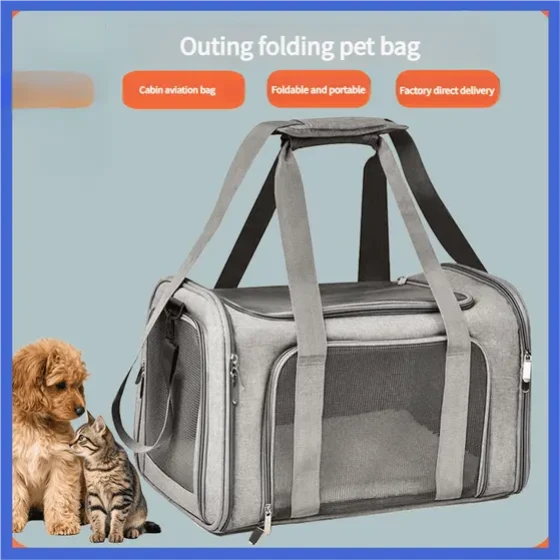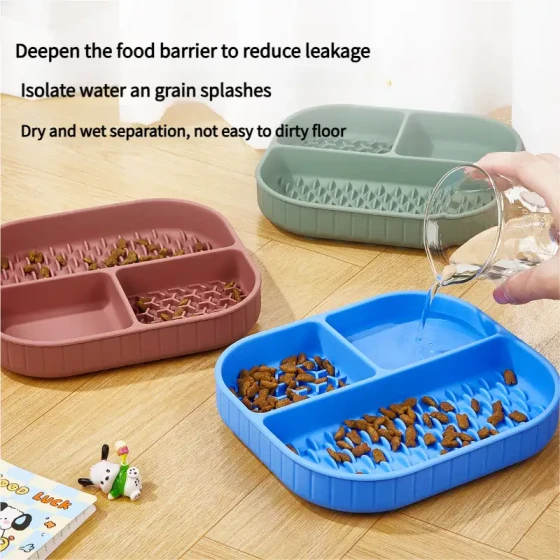Five Principles of Healthy Diet Management for Dogs in Winter
In the blazing heat of summer, dogs often have poor appetites and appear listless even when facing delicious food. Finally, as the weather cools down, dogs regain their normal appetite. With winter arriving, many dog owners wonder, how much should dogs eat? Do they need nutritional supplements? Let me answer these questions one by one for everyone:

Dogs
Portion sizes should be reasonable
Since winter temperatures are low, food cools down faster than in summer. It is best for dogs to finish their food before it cools down, which is better for their stomachs.
To achieve this, dog owners need to reasonably allocate food portions. Feeding smaller amounts more frequently is a good strategy.
If too much food is given at once, it will all get cold before the dog finishes eating. Due to the low temperature, leftover food becomes cold and hard, resulting in waste.
【Editor's Tip】
Additionally, dog owners should note that after the hot summer, dogs may have an increased appetite in winter.
When the dog's appetite is particularly good, help control their food intake. Overeating for a couple of days can easily cause indigestion, leading to poor appetite, vomiting, lethargy, and other symptoms.
Balanced nutritional content
In winter, supplementing nutrition and energy is the primary focus of dog diet management. Dogs need sufficient nutrients and energy intake to better resist cold.
In cold weather, dogs consume a lot of heat energy internally.
Therefore, in winter food combinations, substances like cream, offal, milk, vitamin A-rich foods, and foods high in fat should be increased. These feed items can quickly replenish calories and enhance the dog's cold resistance.
【Editor's Tip】
Of course, these foods should not be given long term, or the opposite effect may occur.
For example, long-term milk consumption can cause the dog digestive problems and diarrhea. Feeding dogs chopped liver with carrots for a long time may cause vitamin A poisoning.
So, nutrition should be balanced, and dogs should not eat only one type of food.
Allow abundant meat supply
Humans take tonic supplements in autumn and winter, and dogs can too, but not by overeating supplements.
Winter is a good time to appropriately increase meat supply so dogs can build up fat and keep warm in cold weather.
【Editor's Tip】
Here is a secret recipe for dog owners: cook and mash lily, lotus seeds, yam, white kidney beans, walnuts, peanuts, red dates, etc., and mix them with dog food. This tonic greatly boosts the dog's vitality.
Excessive meat consumption can easily cause bad breath. Occasionally giving medicinal food like this helps keep the dog healthier.
No need for extra supplements
Veterinarians and trainers generally agree that many branded dog foods have balanced nutrition calculated. Normal dogs only need enough of their dog food daily without additional supplements.
If the dog needs to take extra medicines or supplements, consult a doctor first for proper guidance, as too many mineral supplements may harm more than help.
【Editor's Tip】
Giving supplements has no specific connection to seasons and does not have to be done only in winter but depends on actual need.
Some vitamin-based snacks can be given as rewards during training but should not be given excessively.
Puppies and sick dogs need proper nutrition
For sick dogs, such as those with anemia, feed appropriately more chicken liver, pork liver, lean meat, and eggs since iron and protein are key components of hemoglobin.
Puppies' first 30 days mainly rely on mother's milk, so owners do not need to feed additional food. Dog milk contains rich protein and fat, sufficient for puppy growth.
【Editor's Tip】
For sick dogs, owners should follow the veterinarian's advice and not arbitrarily add nutrients to the food to avoid burdening the digestive system.
Puppy diet management should be adjusted according to growth stages.
After three weeks, puppies start teething. Besides feeding dog milk, some weaning food should be gradually added. The weaning period is crucial for puppy growth, and malnutrition must be prevented.
After two months, puppies generally have a full set of milk teeth and should gradually switch to puppy food.
From birth to five months is the period to develop eating habits. Feeding too much human food may cause puppies to lose interest in dog food. If you intend to feed mainly dog food, avoid giving human food.
Eating well is the most important! To keep your dog healthy through winter, dog owners must not relax their diet management!



